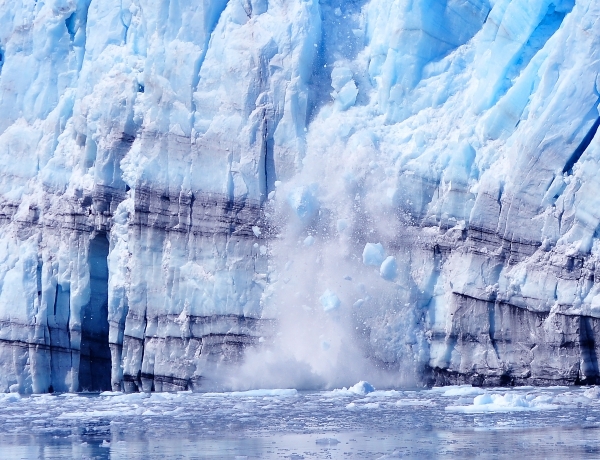ATHENS — It's too late to prevent climate change.
No matter how fast we ultimately act to limit its potentially catastrophic impact - and we must act quickly, or it will be too late to do even that - we have to face the reality that climate change is here and will continue to be an increasingly dominant presence in our lives. We can't avoid it or wish it away.
This frightening prospect can easily paralyze us into inaction, rendering us all too susceptible to escapism, denial, and passivity.
Transitioning into a post-fossil-fuel world, and all that that this might involve, is a mind-warping notion. For the moment, we are blessed to live where climate change is seemingly not an urgent, everyday concern. By now, our memory of Tropical Storm Irene has faded, no longer the in-your-face reminder of what climate change is all about.
Hence, to take action, and be proactive around something where we don't yet feel our backs against the wall, is challenging.
But it's no less necessary. To successfully meet this unprecedented challenge, we have to do whatever we can - and do it now.
* * *
In this context, community is second to none in adapting to the age of climate change. If a successful transition to a sane and sustainable post-petroleum world is to be accomplished - a transition that allows for a life worth living seven generations from now - then we'll need the lifeboat of community to negotiate this turbulent, unknown journey.
But let's be clear as to what we mean here.
People must intentionally engage with their neighbors daily, practicing collaboration and generosity, compassion and acceptance. They must increasingly become self-sufficient - and more importantly, community-sufficient.
In this community, we must learn to take care of ourselves and meet our basic needs by valuing and attending to the welfare of all.
Without this kind of social fabric, we're in big trouble.
Even in Vermont, where we pride ourselves on our sense of community, sustainable communities don't just happen spontaneously.
Even though we can count on one another to step up in a moment of crisis, to have our backs when needed, and to volunteer in efforts that allow our communities to be the civil places they can be, we require more for this new world.
The innate human potential for spontaneous selfless behavior has its limits, as we saw post-Irene, when the many examples of neighborly assistance waned in the face of the severity and duration of what still had to be done. We came back to the familiar way of life that is basic to our oil-dependent, consumer-driven, industrial civilization.
Community solidarity is priceless - and difficult to maintain over the long haul.
* * *
This is important to keep in mind when we consider the kind of community we require in an age of climate change.
We also privilege iPhones and Facebook over face-to-face interactions. Ego all too often trumps selflessness and community solidarity, and the cult of individualism is compounded by the drive to consume more.
These qualities erode and undermine the social fabric that makes possible the kind of long-term, community solidarity that we require.
To successfully deal with our unprecedented situation, which James Kunstler has aptly termed “the Long Emergency,” we have to create a community before the crisis overwhelms us, one that is not dependent upon spontaneous, episodic expressions.
So how do we forge the kind of community solidarity - the sense that we're all in this together and need one another to both survive and flourish?
Once a community is able to increasingly commit itself to ways that work best for its members and begins doing things together - from regular potlucks and other social gatherings, to engaging in practical activities (like growing a garden, making emergency preparations, or sharing resources) - then long-term, sustainable relationships can blossom.
Two steps forward, one step backward - and several to one side or another. But the trick is to get to the point where we have this traction.
* * *
The issue is: How do we begin? How we can move beyond an invariable initial hump of awkwardness and uncomfortableness?
We will need to feel safe and valued, where the initial interactions begin to build the mutual trust we need to examine a new level of responsibility to and engagement with one another.
I would suggest that some structure might be useful in the beginning.
An initial gathering, for example, might include a screening of the 56-minute film, The Wisdom to Survive: Climate Change, Capitalism & Community, a 2013 documentary, followed by a conversation as to how participants feel about climate change.
People might also undertake the four-session curriculum by the Northwest Earth Institute, “Change by Degrees: Addressing the Climate Challenge,” where participants read and discuss each session's material (brief articles, book excerpts, and/or links to online content that are contained in an 84-page manual).
As someone who has had years of experience as a community organizer, I would be interested in working with those of you who would like assistance in co-facilitating such an undertaking, so those of us so involved will no longer be stuck on square one as the crises unfold.
Rather, we'll be increasingly acting as if climate change is present and real - and hence, we'll beless likely to be caught by surprise, overwhelmed, and blown away by circumstances.
Most of all, we'll be growing the resilient, long-term, life-affirming communities that will be basic to a sustainable existence in the age of climate change.
